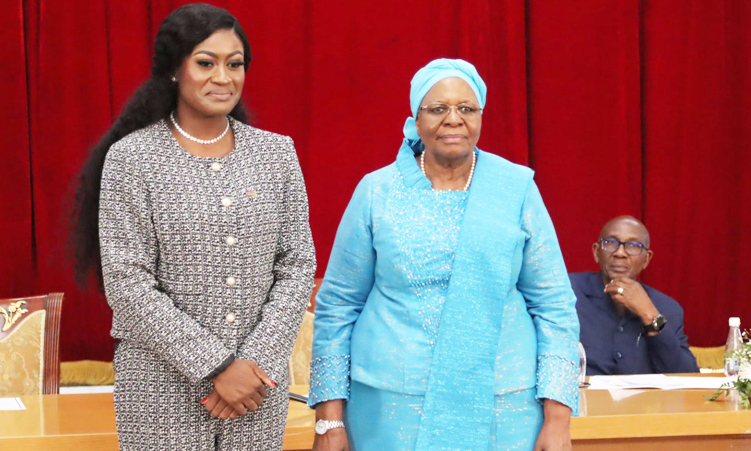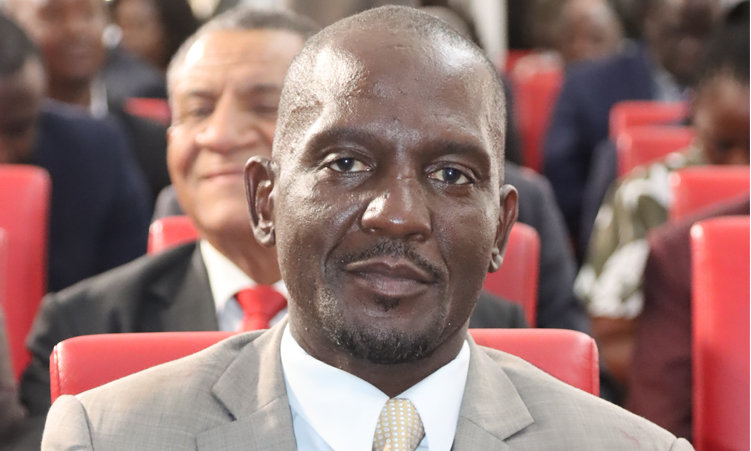ACTIVIST Dimbulukeni Nauyoma intends to take his fight against the Squatters Proclamation of 1985 to the Supreme Court, after three judges of the High Court this week dismissed his attempt to have the entire law declared unconstitutional.
Nauyoma will be appealing against the High Court’s decision, his lawyer, Kadhila Amoomo said yesterday.
He does not expect, though, that an appeal hearing would be taking place this year still, Amoomo said.
Nauyoma’s application to have the Squatters Proclamation declared unconstitutional was dismissed by a full bench of the Windhoek High Court on Wednesday.
In the court’s judgement, acting judge Collins Parker found that Nauyoma failed to prove his allegations that the proclamation violated his constitutional rights, and also failed to show exactly which constitutional rights are infringed by the law and which provisions of the proclamation violated constitutional rights.
Judges Boas Usiku and George Coleman agreed with the judgement written by Parker.
Nauyoma in September 2020 filed an application in which he asked the High Court to declare the 1985 Squatters Proclamation as unconstitutional.
He took this step after he had been arrested in January 2019 and charged under the proclamation, following an incident in which he allegedly tried to prevent the demolition of a woman’s shack in Okuryangava in Windhoek.
The proclamation prohibits the occupation of any land, building or structure without the consent of the owner or lawful occupier of the land, building or structure.
It also allows magistrate’s courts in Namibia to hear applications for the removal of people from land or buildings that they are occupying unlawfully, and further allows local authorities to establish an “emergency camp” to accommodate homeless people.
Nauyoma alleged that the proclamation violates the Constitution’s guarantee of human dignity and the protection of equality.
He also claimed the proclamation is a relic from the pre-independence era and that the apartheid administration of Namibia used it to deny the country’s people access to land and better housing.
He argued as well that the proclamation effectively prohibits people from getting employed in a local authority area if they do not have accommodation in that area.
In response to Nauyoma’s application, the minister of urban and rural development, Erastus Uutoni, in an affidavit filed at the court said the court could not repeal the entire proclamation, as that is the function of the country’s parliament and not the court.
Nauyoma raised “general and vague constitutional objections” to the proclamation, and the high-watermark of his attack on the law was that it dates from the previous regime, which is not a valid basis to claim that it is now unconstitutional, Uutoni said.
Parker noted in his judgement that in terms of the Constitution laws dating from before Namibia’s independence in March 1990 remain in force until repealed or amended by the country’s parliament or until they have been declared unconstitutional by a competent court.
A court may declare a pre-independence law unconstitutional only if there are good grounds for such a declaration, Parker said.
In the application by Nauyoma, he alleged in general terms that the Squatters Proclamation violated constitutional rights, Parker remarked.
Nauyoma failed to clearly state which particular human rights were violated by the law, and also which sections of the proclamation violated constitutional rights and in what way he personally was affected by that, the judge added.
Although Nauyoma’s attack on the proclamation failed, the court decided not to order him to pay the government’s legal costs in the matter.
On that score, Parker said Nauyoma, as a private individual, sued the government to vindicate what he considered to be his constitutional rights. In a constitutional state, such conduct ought to be encouraged, he commented.
Nauyoma might have been misguided, but his application was not frivolous or vexatious, Parker said.
Legal counsel Dennis Khama represented the government when oral arguments in the case were heard in December last year.
Stay informed with The Namibian – your source for credible journalism. Get in-depth reporting and opinions for
only N$85 a month. Invest in journalism, invest in democracy –
Subscribe Now!










